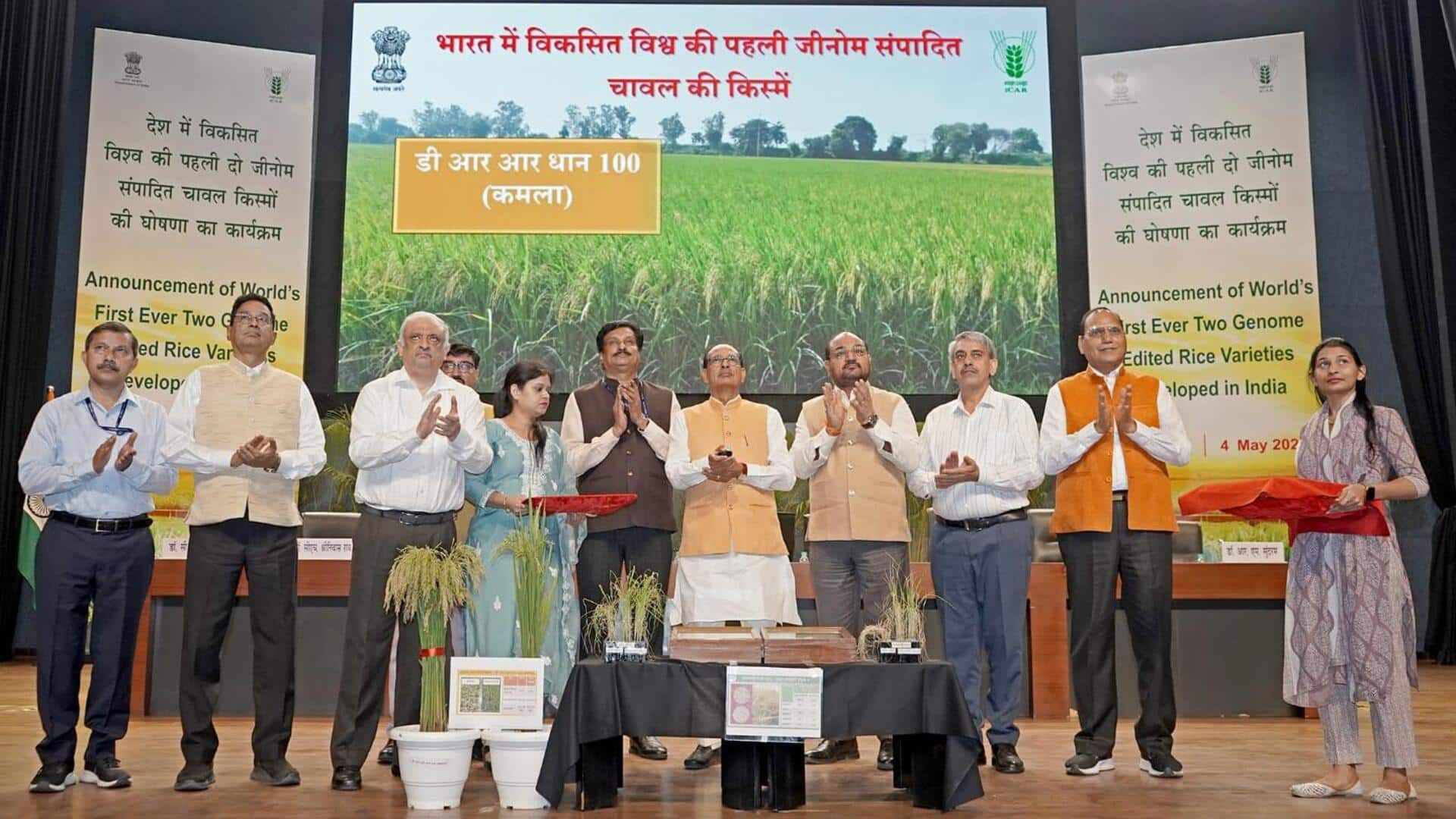
ICAR unveils 1st rice varieties using 21st century 'genome editing'
What's the story
The Indian Council of Agricultural Research (ICAR) has launched two new rice varieties, 'DRR Dhan 100 (Kamala)' and 'Pusa DST Rice 1,' using a 21st Century breeding technology. These are the first genome-edited improved rice varieties in the world. Union Agriculture Minister Shivraj Singh Chouhan said these high-yielding, climate-resilient crops could boost yields by an impressive 20-30%. He added that these seeds will be made available to farmers in two years.
Technological advancement
Genome editing: A breakthrough in precision breeding
These rice varieties are a breakthrough in precision breeding using CRISPR-Cas technology, which enables scientists to make targeted changes to the native genes of living organisms to develop new traits without foreign DNA. An ICAR official said scientists are now in the process of obtaining Intellectual Property Rights (IPR) for the two varieties. Certified seeds will be ready for cultivation in at least two years.
Environmental impact
Climate-smart rice varieties to boost paddy production
The ICAR claims that if these improved varieties are grown across five million hectares, an extra 4.5 million tons of paddy will be produced. At the very least, 7,500 million cubic meters of irrigation water would be saved due to their short duration (20 days earlier), and greenhouse gas emissions would see a 20% decrease.
Research initiative
ICAR's genome-editing research project in rice
ICAR started a genome-editing research project in rice in 2018, working on two broadly cultivated mega rice varieties—'Samba Mahsuri (BPT5204)' and 'MTU1010 (Cottondora Sannalu).' It aimed to improve their qualities through technological interventions. ICAR scientists successfully developed these varieties with enhanced stress tolerance, climate adaptability, and yield without losing their existing strengths. This resulted in the new genome-edited varieties—'Kamala' and 'Pusa DST Rice 1.'